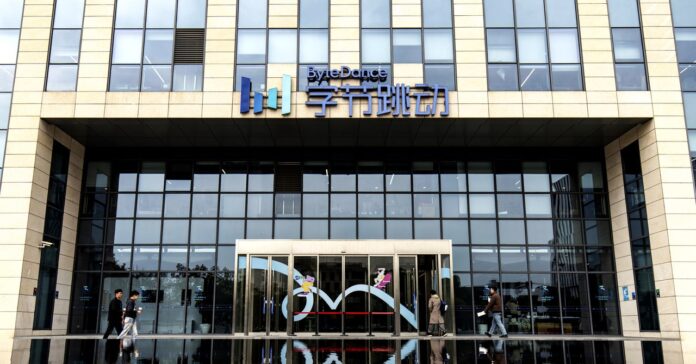A former ByteDance intern who was allegedly dismissed for professional misconduct, including sabotaging colleagues’ work, was announced as a winner of one of the most prestigious annual awards for AI research this week. Keyu Tian, whose LinkedIn and Google Scholar pages list him as a master’s student in computer science at Peking University, is the first author of one of two papers chosen Tuesday for the main “Best Paper Award” at the Neural Information Processing Systems (NeurIPS) conference, the largest gathering of machine learning researchers in the world.
The paper, titled “Visual Autoregressive Modeling: Scalable Image Generation via Next-Scale Prediction,” presents a new method for creating AI-generated images that Tian and four coauthors—all affiliated with either ByteDance or Peking University—claim is faster and more efficient than its predecessors. “The overall quality of the paper presentation, experimental validation and insights (scaling laws) give compelling reasons to experiment with this model,” the NeurIPS Best Paper Award committee wrote in a statement.
The committee’s decision to grant the honor to Tian, whom ByteDance reportedly sued for over $1 million in damages last month, claiming deliberate sabotage of other company research projects, quickly became the focus of wider discussions online about how NeurIPS is run and the way top AI researchers evaluate the work of their colleagues. The news also caused the details of a scandal that had been brewing on Chinese social media for weeks to finally spill over onto the English-language internet.
“NeurIPS gave best paper award to a super problematic work (not first time this has happened btw),” Abeba Birhane, head of the newly formed AI Accountability Lab at Trinity College, wrote on Bluesky. “You’d think a conference that prides itself on upholding the highest scientific & ethical standard would [do] due diligence before they give the award to a paper that directly contradicts their values.”
A spokesperson for NeurIPS stressed that the honor was given to the paper, not to Tian himself. They directed WIRED to a portion of the award committee’s statement explaining how the conference evaluates paper submissions. “The search committees considered all accepted NeurIPS papers equally, and made decisions independently based on the scientific merit of the papers, without making separate considerations on authorship or other factors, in keeping with the NeurIPS blind review process,” it reads.
On Bluesky, Birhane and other AI researchers linked to an anonymous GitHub blog post that also circulated on HackerNews, Reddit, and other platforms in recent days urging the academic AI community to reconsider granting the Best Paper honor to Tian because of his “serious misconduct,” which it says “fundamentally undermines the core values of integrity and trust upon which our academic community is built.”
The blog post includes a list of technical tactics Tian allegedly used to hoard ByteDance’s computing resources for his own work. It accuses him of having “deliberately disrupted experiments, causing erroneous and irreproducible results. This led colleagues to question the scientific validity of their findings, severely damaging their physical and mental well-being.”
It also called on ByteDance to retract the research “as a gesture of respect for the company’s other researchers and the entire academic community.” ByteDance did not immediately return a request for comment from WIRED; neither did Jiang Yi, a generative AI research leader at ByteDance listed as the “project lead” on the award-winning paper, or the other coauthors. Tian did not respond to a request for comment sent to a school email associated with him.
The accusations about Tian in the blog post mirror ones detailed in another, earlier GitHub blog published in Chinese on October 18. At the time, rumors were swirling on Chinese social media about a ByteDance intern who had supposedly caused the tech giant millions of dollars in losses by disrupting ongoing AI experiments at the company.
ByteDance tried to correct the record on October 19, when it issued a statement on the Chinese news aggregator Toutiao. It said that an intern on the “commercial technology team” had indeed been fired in August for committing “serious disciplinary violations,” but asserted that some aspects of the saga had been exaggerated in media reports, including that it involved 8,000 graphics processing units (GPUs)—computer chips that are needed to train high-powered AI models. ByteDance added that it had reported the intern’s behavior to his university.
The controversy highlights the lengths some AI researchers are willing to go to access a scarce number of GPUs available on the market. Supplies are especially limited in China due to US export controls, which restrict the sale of many high-end semiconductors to the country. Tian and his coauthors, however, are optimistic that their future research in areas like AI-generated video could help make running models less resource-intensive.
It is becoming “prohibitively expensive” to generate high-resolution videos with traditional AI models, the authors noted in their paper, adding they believe their methodology could provide a solution. “We therefore foresee a promising future for exploiting VAR models in the realm of video generation.”
Zeyi Yang contributed reporting.
Source : Wired






